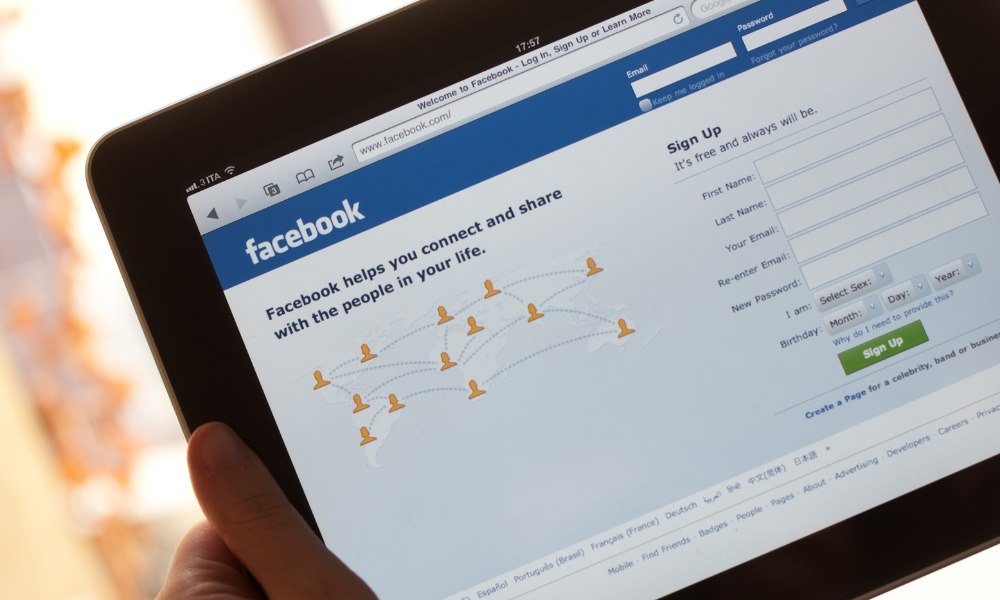Facebook Business Page vs Your Own Website: Which is Best?
Posted on 26th August 2022
“I have a Facebook Business Page, so do I really need a website?” This is a question we get asked a lot here at it’seeze. And it’s a fair one because Facebook is a powerful platform – more than 200 million small businesses worldwide use its suite of tools each month.
But is a Facebook Business Page alone all you need for a strong online presence? We dive into the pros and cons of Facebook versus your own website to help you decide.
Pros and cons of a Facebook Business Page
Let’s start with some advantages. The biggie is that it’s free! It costs absolutely nothing to set up a Facebook Business Page and start getting followers. You can send out invites to all your personal contacts to get the ball rolling. A Facebook Business Page is ideal for:
Posting updates – to keep your followers in the loop about your business.
Capturing leads and enquiries – it’s convenient for people to send you a message or leave a comment.
Building engagement – people commenting on individual posts help create a buzz around your products or services.
Communicating one-on-one – through the Facebook Messenger app.
Advertising locally – Facebook has access to tons of user data which means you can drill down into your target audience and advertise to the people who matter to your business (for a fee, of course).
There are 55.8 million Facebook users (as of June 2022) in the UK alone. So it makes sense to get your business on a platform where so many people are hanging out. However… Facebook does have several limitations.
Not everyone has Facebook (believe it or not). Both older and younger demographics aren’t that fussed by the platform. See how other audiences use Facebook by age and gender.
You need to pay to get real results. Over the years, Facebook has reduced its organic reach for business pages, preferring to serve user-created content over that created by brands.
You don’t have complete control. Facebook takes posts down at the drop of a hat if they believe the content goes against guidelines. Not only that, but Facebook’s algorithm changes constantly, so your page layout and features (and the way people find your page) may change without warning. Plus, what if Mark Zuckerberg decides to shut Facebook down? (Seriously, it’s been considered!)
Branding is limited. You’ll get a header and profile icon which isn’t enough to make your brand memorable in the mind of your target audience.
SEO is lacking. Your Facebook page will be indexed by Google and may appear at the top of search engine results. But these results will likely point to your main business page, not a particular post where you mention a product or sale that you’re offering.
Pros and cons of your own website
A website gives you your own dedicated corner of the internet, over which you have full control. Here are some other advantages:
You’ll have better control over branding and layout. You’ll have total input on how visitors perceive your brand and their experience while navigating your site. You can tell your business story however you want!
A website builds trust. It gives your business instant credibility, which is vital if you’re selling products and require customers to hand over their payment details.
Plenty of SEO opportunities. With a dedicated website, you can optimise every single webpage and blog post for search engine rankings.
Provides another marketing channel. The saying ‘Never put all your eggs in one basket’ rings true here. Today’s consumer uses many channels when interacting with a business, so a website will complement your marketing activities.
You can add social feeds. Your website is another place where your target audience can find you on social media – connecting and displaying your social feeds on your site is simple.
Of course, there are some considerations to creating your own website, namely:
There’s a cost attached. Some website designers will charge anywhere between £1K-£10K, depending on your requirements. However, at it’seeze, we offer a monthly plan starting at just £35 per month with a small upfront payment of £350.
There may be a learning curve. You’ll need to get to grips with the back end of your site so you can add new content and perform routine maintenance (if you have an it’seeze website, you don’t need to worry about the latter).
So which is best, a Facebook Business Page or your own website?
In our view, it makes sense to use both. Facebook is a channel that simply can’t be ignored. At the same time, if you want your business to be taken seriously, you need an online presence that properly reflects your branding and your offering while catering for those people that aren’t on Facebook.
Thinking of taking the plunge and creating your own website? We’re here to help and advise – get in touch to discuss your requirements.
Share this post:



